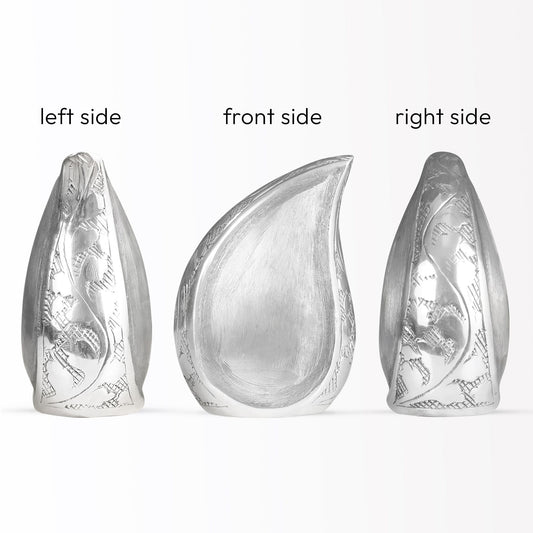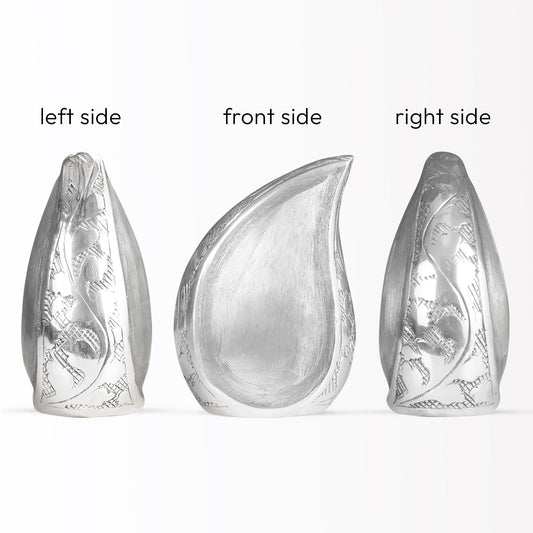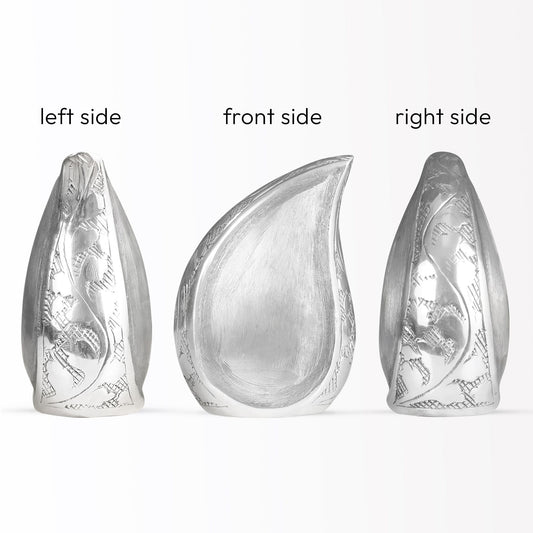Popular Urns
New Hampshire Cremation Laws and Regulations:

Understanding New Hampshire Laws and Restrictions on Cremation-
The laws of New Hampshire regarding cremation give the required transparency in the process but also acknowledge respect for the rights of family members and funeral professionals' roles.
Its regulations encompass all the authorization procedures to the standardization of crematories, always given under protection and ethical treatment in relation to public health. Knowledge of such laws along with potential limitations shall guide individuals and families to make a very proper choice regarding cremation in New Hampshire.
Authorization and Waiting Period:
New Hampshire law requires a 48-hour waiting period after death before cremation. This statutory waiting period serves two purposes: It confirms the cause of death; it will also afford time to allow families to change their minds or make other arrangements if they so desire.

New Hampshire permits the cremation to take place only after the execution of written authorization from the nearest legal next-of-kin, or after an appointed agent as specified in legal documents by the person who has died.
In cases where the deceased individual did not nominate an agent and also other family members cannot agree, this might delay the processes which may then become confusing for the same arrangements.
Cremation Permit Requirement
Besides next-of-kin authorization, New Hampshire further requires a cremation permit issued by the local medical examiner or his/her designated official. Funeral homes provide this permit along with an inquiry into the cause of death, which eliminates foul play and questionable circumstances surrounding the death.
Although this prevents the burning of wrongly identified or dead bodies, it would mean a waiting process after a cremation process is initiated if the relevant offices are at a distant location in a rural or under-staffed area.
Restrictions on Scattering Locations for Cremated Remains:
Laws in New Hampshire state that it is permissible to scatter cremated remains. Families may scatter on private property if authorized by the land owner, but scattering in state parks, waterways, or public lands may be not permitted or require specific authorization.

Some families are therefore restricted from scattering remains in a special natural place. New Hampshire scattering restrictions are laudable, this time around to protect the environment as well as respect public spaces, but it adds complexity for families looking to pay a final tribute to their loved one's wish.
Transportation of Ashes:
Ashes can be moved across state lines however, there are certain recommendations and guidelines that should be followed. Funeral homes usually advise people to use secure containers in handling ashes during transportation in case one travels by air, though it would follow the standards of the TSA.
New Hampshire allows transport of ashes into other countries however, such moves depend on the laws at the destination country. Sometimes, extra papers are required or even pays and would be cumbersome when one has to transport abroad.
Requirements of Crematory Facilities:
New Hampshire law requires that crematories be licensed and inspected, and therefore facilities are held to a high standard in terms of operations.
Every cremation must have associated with it a completed record detailing identification of the deceased and every process used. While such high standards ensure best practice in every aspect of cremation, they can, at the same time, limit opportunities to cremate in some areas in that New Hampshire has only a few licensed crematories compared to its bordering states.
This may mean families could face less access to such facilities, especially in more rural locations, potentially creating longer queues.

New Hampshire law governs the course of action concerning remains strictly for following family wishes; funeral homes must have clear, transparent communications related to options and costs to avoid unexpected billings. The authority of the deceased or next-of-kin should be followed without deviation, but these restrictions can feel very limiting when families may have financial limitations and special requests.
Conclusion:
New Hampshire's cremation laws provide both enough to preserve public health and sound environmental concerns while balancing with graceful dignified treatment.
These regulations are always the trusted foundation, but because of a lack of cremation facilities and the resulting waiting and scattering location issues sometimes become problematic for families in New Hampshire, knowing these laws and working closely with licensed professionals will assist families in New Hampshire as they lead their loved one through the cremation process according to state requirements, ensuring dignity is given to remains.




